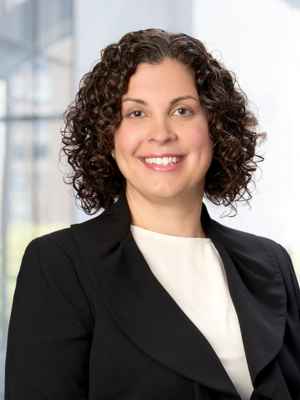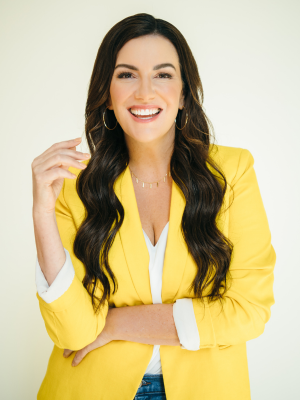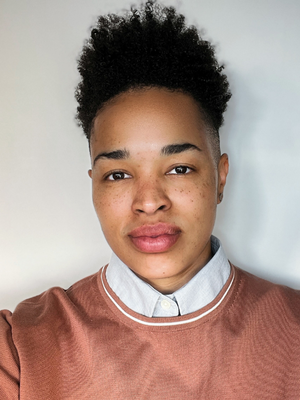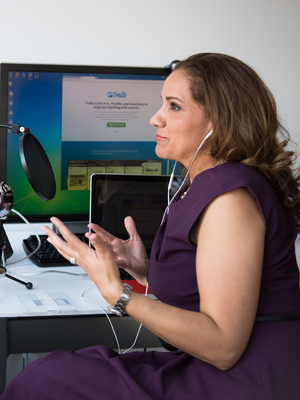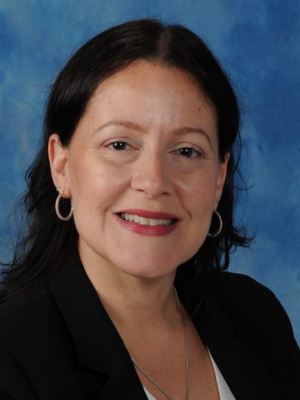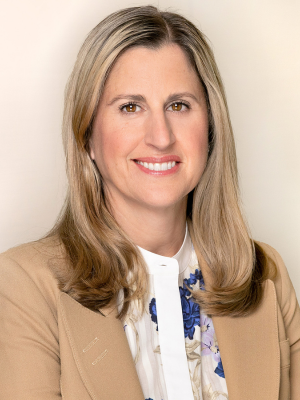 “Life is about picking yourself up when you get knocked down. Those who do that the best are the ones who tend to be the most successful, however you might define success,” says Jennifer Doyle.
“Life is about picking yourself up when you get knocked down. Those who do that the best are the ones who tend to be the most successful, however you might define success,” says Jennifer Doyle.
Tenacious in the face of challenge, Doyle is a leader who does not quit. She shares how this mentality of perseverance and optimism has helped build her career and shaped her life.
Moving Forward for Success
Starting as a temp more than twenty years ago, Doyle describes the opportunity of getting in the door working on the trading floor as “winning a lottery ticket” and paving the way to the career she has today. Being surrounded by intelligent people in a fast-moving, competitive environment that is also relationship-focused felt perfectly aligned with her personality and strengths.
“As a former college athlete, I like to compete, I like to win, and I like to be part of a team. I also enjoy making decisions and operating in a fast-paced environment. It was a fit from the beginning.”
Fast forward to today and Doyle is a Managing Director and co-head of the Structured Products Group at Wells Fargo’s Corporate and Investment Bank. However, she will be the first to tell you that success does not happen overnight.
“There is a certain tenacity and grit that is required to be successful in this business. If you can cherish the highs and reinvent yourself and pick yourself up when things get hard, that resiliency in time will keep you moving in the right direction.”
Doyle approaches her life outside of work with the same mentality of persevering when the going gets tough and recognizing that she has agency in the process. It served her well in dealing with the shocking experience of being one of the passengers whose plane crash-landed in the Hudson River 15 years ago while on a business trip.
She reflects, “If you went into that experience an optimist, I think you came out even more of an optimist. If you went into that experience as a pessimist, I think you came out even more of a pessimist. We all experienced the same thing, but everyone had a different interpretation of what happened and how it affected them.”
For Doyle, her optimistic outlook and belief that she needed to keep moving forward meant that she got on a plane the next day because she “did not want fear to rule my life.” She adds, “I tell my children happiness is a choice. I choose to be happy, and if I was unable to make that choice today, then I’m going to try to make that choice tomorrow.”
Sponsorship and Speaking with Authenticity
Beyond resilience and determination, Doyle points to having the support of others as integral to her career. She shares how the kind of support she needed shifted over time as she continued to build confidence, finding there is strength in speaking with authenticity.
“As I developed in my career, the sponsors that I acquired would later tell me that the reason they took an interest was because I brought a different perspective and opinion to the table.” She continues, “People wanted to hear what I had to say because they recognized that I didn’t have an ulterior motive, I was genuine.”
As a leader, Doyle mentors and sponsors others in both formal and informal capacities, often finding her calendar full of people interested in connecting to get her advice or opinion. Being sought after for her point of view is a direct reflection of others seeing she genuinely cares and takes an interest in their growth.
“My mission is to lead in a way that balances the needs of the business and our employees – and ultimately drives positive outcomes for both. I’m always thinking about what’s best for our team and what’s best for our clients. That approach has cultivated a desire for people to want to talk to me and get advice.”
Doyle has twice been the head of Wells Fargo’s WomenGoFar network, as well as its executive sponsor. She also is a sponsor for BOLD, a program designed to provide mentorship and sponsorship to high-potential talent at the firm.
Challenging the Norm
As determined as she is to persevere in the face of obstacles, Doyle is also unafraid to challenge the norm stating, “I do think I am a change agent. It probably took me 20 years to have the courage to say that.” She speaks to the recent experience of being a woman in a leadership role playing in the Wells Fargo Pro-Am Golf Tournament and what it meant for her to participate.
“I was blown away by the response that I got from women, so many of whom pulled me aside afterwards to tell me how inspirational it was seeing me play in what was publicly a field of men.”
One comment that was particularly touching to Doyle was a woman who said, “you’re breaking the mold.” Intentionally participating in the tournament to prove that a woman could do it, Doyle is thrilled by the response of her colleagues – both men and women.
“As a leader, I now have the opportunity to challenge and change what people consider to be the norm, and I actively do so.”
Using a Passion for Golf to Connect to Community and Family
Taking her passion for golf beyond breaking molds at work, Doyle is on the board of First Tee of Charlotte, an organization that provides opportunities for youth who would not otherwise typically have the opportunity to play golf.
“It integrates the game of golf with character-building learning experiences and emphasizes values such as honesty, integrity, confidence and perseverance. And of course, they have fun.”
Doyle is also passionate about bringing the game of golf to more women, not only because it is typically a more male-dominated sport, but because she herself has gained so much from the sport.
“It provides an opportunity from a business connectivity standpoint to play with clients or colleagues. I love being outside and in nature, getting exercise by walking the course, and it’s a chance for me to spend time with our children.”
Doyle admits that one of the reasons she got into golf was because her spouse and children enjoyed the game, and she didn’t want to be left out. Now that her children are teenagers, she is thrilled to have the opportunity to be active with them outdoors for an extended period without distractions like smartphones. It also ties into her approach of managing a successful career and time with her family.
“I am really present. It’s not about quantity, but about the quality in everything you do, whether it’s at work or being with your family.”
By Jessica Robaire


